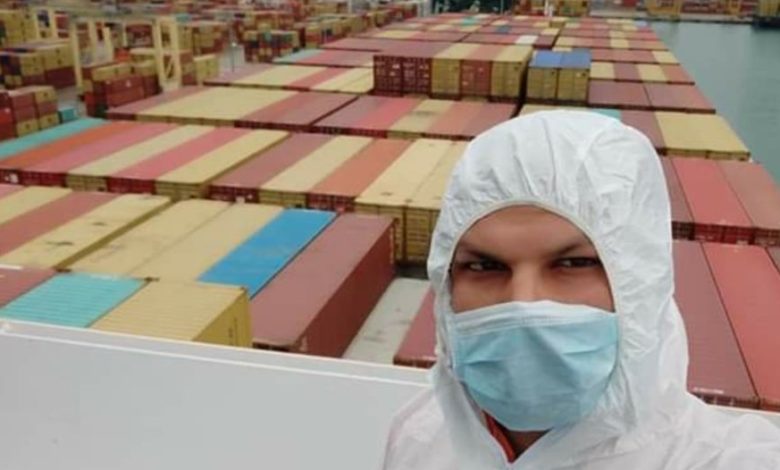Action plan to get crews repatriated gains momentum

One shipmanager has come up with a solution for the crew change crunch hitting shipping around the world and has started to engage with stakeholders to get seafarers home finally.
Captain Rajesh Unni, founder and CEO of Singapore-based Synergy Group, has called for the organisation of collective crew changes at key hub ports by shipmanagers and owners.
The closure of borders and strict quarantine rules in the wake of the coronavirus spread are preventing crew changes from being completed in accordance with employment contracts and international conventions including the Maritime Labour Convention.
The upshot is that thousands of seafarers are now stuck on ships unable to return home. Moreover, for those stranded at sea, conditions are deteriorating rapidly.
“I believe that collective, carefully managed crew changes at designated ports could help us tackle this crisis,” Unni said in a release yesterday.
Speaking with Splash today, Unni suggested bunkering hubs Singapore, Gibraltar and Houston would make good global crew repatriation centres during the Covid-19 crisis. Countries where new ships are being delivered and drydocked like China, Korea and Japan would also need to come onboard the crew repatriation scheme.
Synergy is looking at making robust risk assessment plans and then approaching relevant port authorities to see if they can help and is seeking help from fellow managers and owners in developing the plan.
“It has to be a team effort and so far most of the people that I am speaking with are equally interested,” Unni said.
Seafarers returning home would have to undergo a 14-day quarantine period, according to the plans put forward by Unni. Those joining ships would need to pass a mandatory medical, including a Covid-19 test.
“Even if Covid-19 infections subside, which we all hope they will do, putting a plan in place now will be good preparation for the future,” the Synergy boss pointed out in the release issued yesterday.
In any given month around 100,000 seafarers reach the end of their employment contracts and are repatriated.
“This is a time bomb,” said Unni yesterday. “Even under normal circumstance, seafaring is stressful and involves spending long periods of time away from friends and family. Right now, in the midst of a pandemic when of course people are anxious, thousands are stuck at sea or stranded around the world waiting to join vessels but unable to do so.”
Carl Schou, CEO of another Singapore manager, Wilhelmsen Ship Management, has taken to LinkedIn to share his thoughts on the issue of crew changes during the coronavirus.
Having told his crews that they will have to work longer than planned, Schou wrote on social media: “We have bought ourselves a time window – for now. We SHOULD NOT have to ask the crew for another deferral. This is unacceptable. Much has been said by ITF, ICS and IMO. But we are running out of time ! The authorities must make travel ban exemptions for seafarers. As airfreight capacity is diminishing – ships are our last reliable solution. Shipping cannot stop due to COVID-19. We need a unified approach.”
Andy Lane from Singapore shipping advisory CTI Consultancy told Splash today that it was now time that governments around the world considered seafarers as essential workers and granted them more freedom of movement.

If local Governments and authorities do not allow commercial flights for joining and repartition of seafarers, then they should plan to use cargo flight for transfer of seafarer to and from their respective countries… in that way supply chain would not break…. and also covid19 would not spread ….. as seafarer has to pass a strong medical check up….